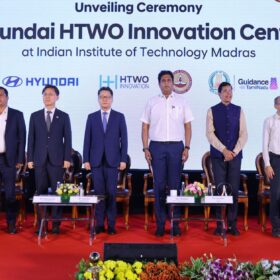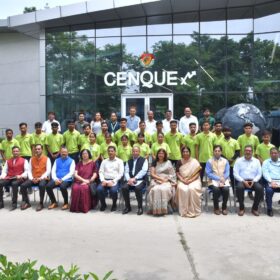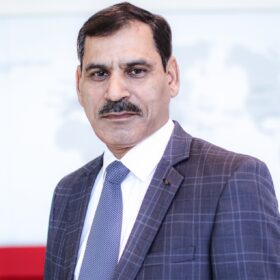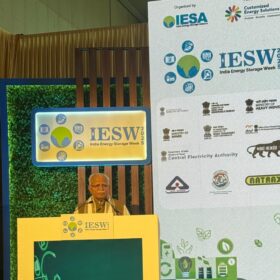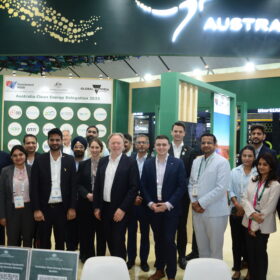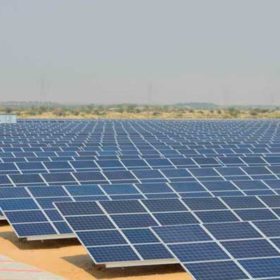“Energy storage will account for half our business within three years”: Geon vice president
Khushi Kabra, Vice President–Strategy at Geon (formerly Battrixx), speaks to pv magazine on pivoting from electric vehicle (EV) batteries to building a strong foothold in the energy storage space.
Australia’s green hydrogen plan faces water shortage
Green hydrogen is touted by some as the future – a way for Australia to slowly replace its reliance on fossil fuel exports. The energy-dense gas has the potential to reduce emissions in sectors challenging to decarbonise, such as steelmaking and fertiliser manufacturing.
The Hydrogen Stream: IIT Madras, Hyundai to launch green hydrogen innovation centre
Hyundai Motor India Ltd (HMIL), in collaboration with IIT Madras, will establish a 65,000 sq. ft. green hydrogen innovation centre in Chennai, enabling research, development, and deployment of hydrogen technologies.
Tata Power inaugurates green energy skilling centre in Delhi
Tata Power’s Green Energy Skill Centre will impart training in renewable energy technologies, including solar PV system installation, commissioning and operation and maintenance, energy storage, pumped hydro storage, and electrical safety to prepare future-ready green energy workforce for the country’s energy transition.
India’s emerging role in EV battery recycling: Creating a circular economy
India is well-placed to advance the e-mobility circular economy in Asia against the backdrop of the fast-growing market and recycling strategies. Adopting the 5Rs—Reduce, Reuse, Repurpose, Remanufacture, and Recycle—can help in reducing resource depletion and waste.
“India on track to achieve 50% renewable energy milestone by year-end”: Union power minister
“India is on track to achieve the milestone of 50% renewable energy share in its total installed power generation capacity by the end of the year,” said union power minister Manohar Lal Khattar at the 11th edition of India Energy Storage Week (IESW) 2025.
Australian Clean Energy delegation visits India to further deepen their engagements
A 30-member Australian Clean Energy Delegation representing 22 companies, is visiting India from July 7 – 11, 2025 to showcase Australia’s innovative solutions across energy storage technologies, AI solutions for energy operations, solar technologies, green hydrogen, energy modelling and weather forecasting, education & capacity building and consulting.
Oriana Power secures BESPA for 50 MW/ 100 MWh battery energy storage systems in Rajasthan
Oriana Power has signed a 12-year battery energy storage purchase agreement (BESPA) with Rajasthan Rajya Vidyut Utpadan Nigam Ltd for 50 MW/100 MWh of standalone battery energy storage systems in Rajasthan.
Powering a greener future through India’s clean energy transition
As India adds more intermittent renewables like solar and wind to its energy mix, modernising the electricity grid becomes a priority. Grid expansion, integration of battery storage systems, and digital monitoring tools are critical to accommodate fluctuations in generation and demand.
NLC India to infuse INR 1,631 crore into renewable energy arm
State-owned NLC India Ltd has approved an investment of up to INR 1,630.89 crore in its wholly owned subsidiary, NLC India Renewables Ltd (NIRL), through equity infusion


